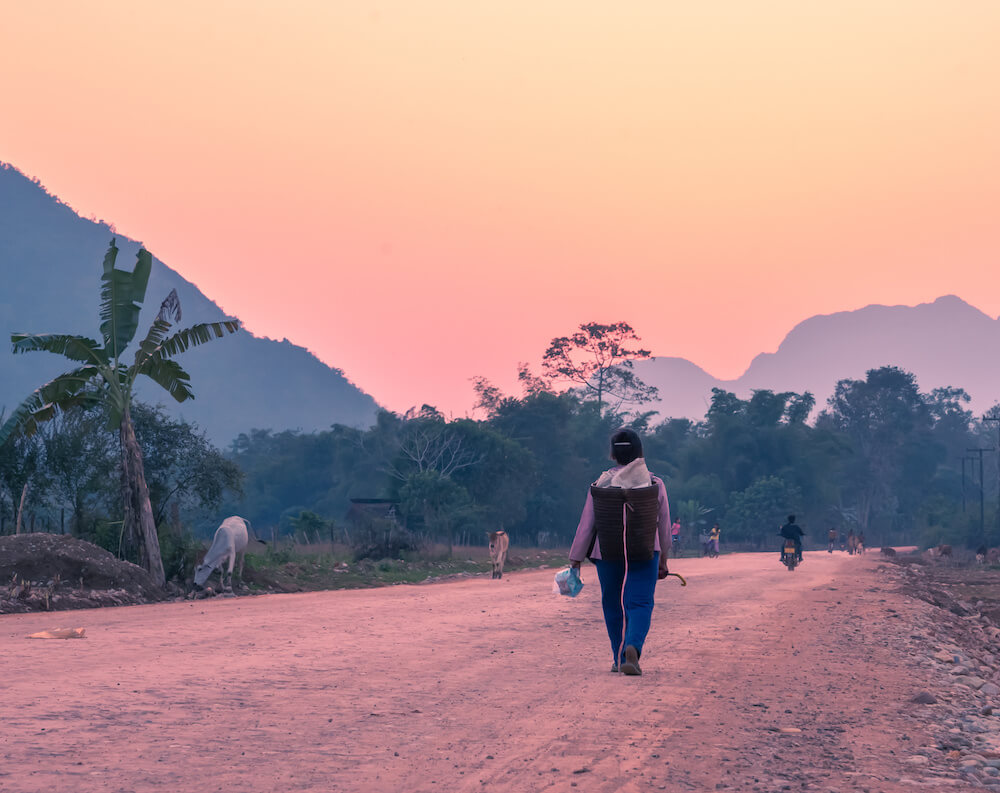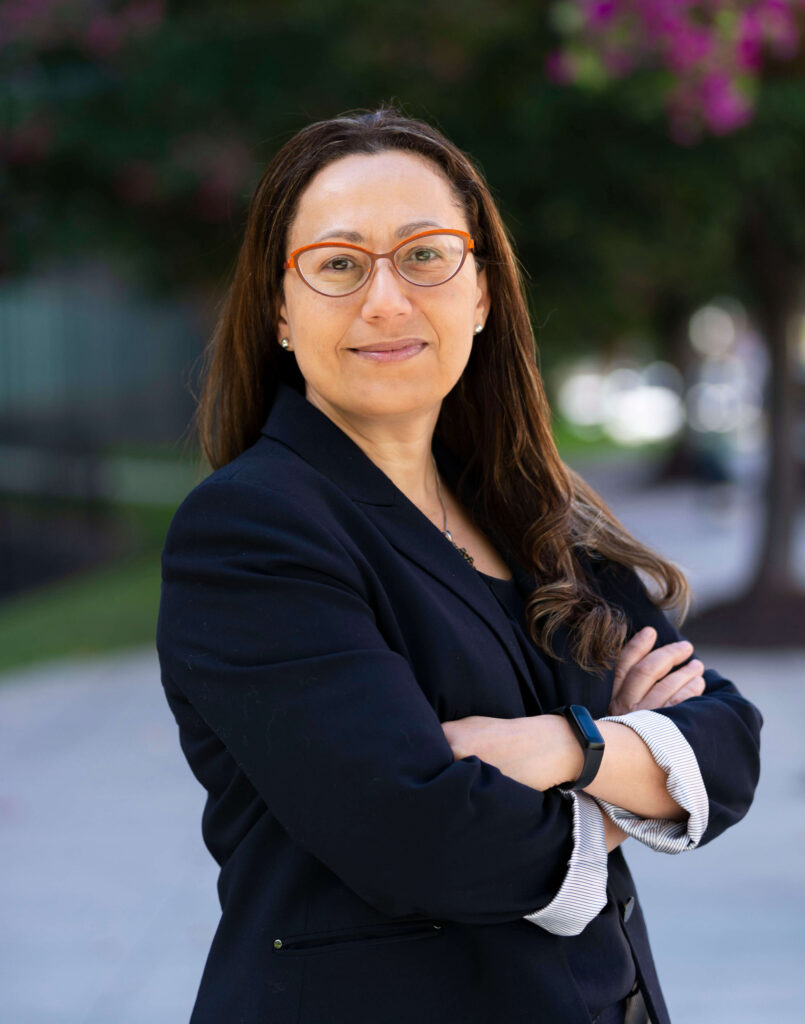
Person
- Mayada El-Zoghbi
Topic
While many of us have been trying to carry on with our work as normal, there is nothing ‘normal’ about the current situation. Like other organizations, CFI is rethinking its priorities in both the short and long term.
COVID-19 has upended life around the world, but it is likely going to have much longer and deeper ripple effects on the lives of the BOP and on the institutions that serve them. In light of this, CFI has made important changes to its work program, thanks to the generosity and flexibility of our donors who have been co-collaborators and thought partners in our collective response to the pandemic.
Customer Research and Customer Capability
Over the past several years, CFI has prioritized research on financial health and had plans to extend this work to micro and small enterprises in 10 developing countries. We were one week away from launching data collection in Nigeria, followed by nine other countries, with support from the Mastercard Center for Inclusive Growth. But the rapid roll out of shelter in place policies and lockdowns throughout the world has meant a need to rethink our research agenda. For the past several weeks, we have been mobilizing to reshape our research approach and our methodology to embark on phone-based panel surveys in at least five countries to answer the following questions for micro-and small enterprises:
- New Reality: How were things before COVID? How are things now?
- Exits: Which firms are exiting the market? What are the basic characteristics of those firms?
- Survivors: How are they keeping the doors open? How long can they survive?
- Financial Tools: Are owners on the “rails”? Can they be reached through formal channels now?
- Household Impact: Are owners making ends meet? Are they food secure?
We will make both the data and our analysis of the data publicly available and we hope this can be used by policymakers, financial service providers, investors and donors to guide their respective responses.
In addition to focusing on micro and small enterprise data, we are also looking to deploy research and a new customer capability tool with a broader base of customers, including gig workers and those who are formally employed. With the support of MetLife Foundation, CFI is developing an app, called FinVenture, that is built on global evidence on behavioral research and uses nudges, rewards and games to improve customer decision making and capability. We are in discussions with multiple stakeholders from microfinance networks to social media and e-commerce platforms to test the use of the app to support financial health during the COVID-19 related responses.
Consumer Protection Under COVID-19
Over the past several months, CFI has been rethinking its consumer protection work and assessing the future of the Smart Campaign in light of evolving risks in the digital age. The emergence of new players — like MNOs, fintechs, and digital platforms — raise new questions about consumer protection as well as the means by which we influence behavior change. In light of that, CFI is considering whether a campaign-style approach, fueled by the incentive of certification, is still effective and relevant in today’s context. While CFI will continue to assess our overall consumer protection approach, including the future of the Smart Campaign, COVID-19 is requiring that we immediately prioritize the emerging risks linked to the COVID-19 response.
COVID-19 is requiring that we prioritize emerging consumer protection risks linked to the COVID-19 response.
We are seeing an increase in fraud and an escalated and expedited use of digital payment channels to get cash out to the BOP as part of the COVID-19 responses. For these and many other reasons, we are shifting our consumer protection agenda to better understand and document emerging consumer protection risks. We also aim to support donors, governments and humanitarian organizations to build in sound consumer protections in their cash transfer and other financial services used for the COVID-19 response.
Supporting Investors and Policymakers
Critical to the COVID-19 response is the role of investors and policymakers who have within their means the tools that will make or break the impact of the pandemic on the institutions that serve the BOP. How should investors respond during this pandemic? We know liquidity is a major concern now and should be the main priority. But what happens next? What should DFIs prioritize? How should equity investors respond?
CFI, along with many of our industry partners, have been in discussions about developing coordinated tools and responses for the investor community. CFI, SPTF and e-MFP launched a discussion platform, covid-finclusion.org, to reflect on what we know from past crises and to develop updated guidance for investors and providers relevant for today’s situation. CFI, MIX and CGAP are in discussions about reducing the data collection burden on MFIs, and putting in place more streamlined tools that can help investors get the right information they need from their investees without unduly adding to the operational strains of the pandemic.
As home to the Financial Inclusion Equity Council (FIEC), CFI is also facilitating and engaging with the equity investors and coordinating with other investor constituencies to ensure that there is a structured and coherent investor response. Among other things, FIEC members are embarking on shared principles linked to COVID-19. Additionally, we plan on launching dedicated research that will help equity investors address longer-term restructuring, merger and insolvency issues that may arise from the fall-out of the pandemic.
On the policy front, we are seeing COVID-19 responses spanning fiscal stimulus (cash transfers, funds to MSMEs, health care spending, etc.) as well as important monetary policies, such as liquidity measures, to support the banking sector and deferment in the application of Basel III rules. Which of these measures are most critical for the BOP and the institutions that serve them, and how should regulators and policymakers think about prioritizing short-term benefits without undermining longer-term impact on the BOP? CFI will be launching a policy initiative that aims to support the evidence and impact analysis of different policy responses.
Delaying Formal Launch of CFI’s New Strategy Launch
In light of the immediate COVID-19 measures, CFI will be delaying the formal launch of its new strategy, which I referred to in this blog post. In addition to our consumer protection work, we had identified several pro-poor research streams including women’s financial inclusion, financial services to support resilience and livelihood adaptation to climate change, and data opportunities and risks. We will continue to push all of these agendas but will begin with the COVID-19 related aspects of this work. For example, we are starting our work on data opportunities and risks focusing on how the COVID-19 pandemic is resulting in a wave of responses that may have long-term ramifications for data privacy and data rights.
We will continue to push our gender, climate change and data agendas, but will begin with the COVID-19 related aspects of this work.
As the pandemic stabilizes and we return to a modicum of normalcy, we hope to organize a formal strategy launch at a later date to share more details about our plans with the wider community.
Inclusive finance is undeniably more important today than ever. It is heartening to see the amount of collaboration that is taking place across the industry to ensure that the BOP does not bear the brunt of this pandemic. CFI is proud to be working with all of our partners and stands ready to do our part.
Best,
Mayada El-Zoghbi, Managing Director
Mayada El-ZoghbiInclusive finance is undeniably more important today than ever. It is heartening to see the amount of collaboration that is taking place across the industry to ensure that the BOP does not bear the brunt of this pandemic. CFI is proud to be working with all of our partners and stands ready to do our part.
Authors
